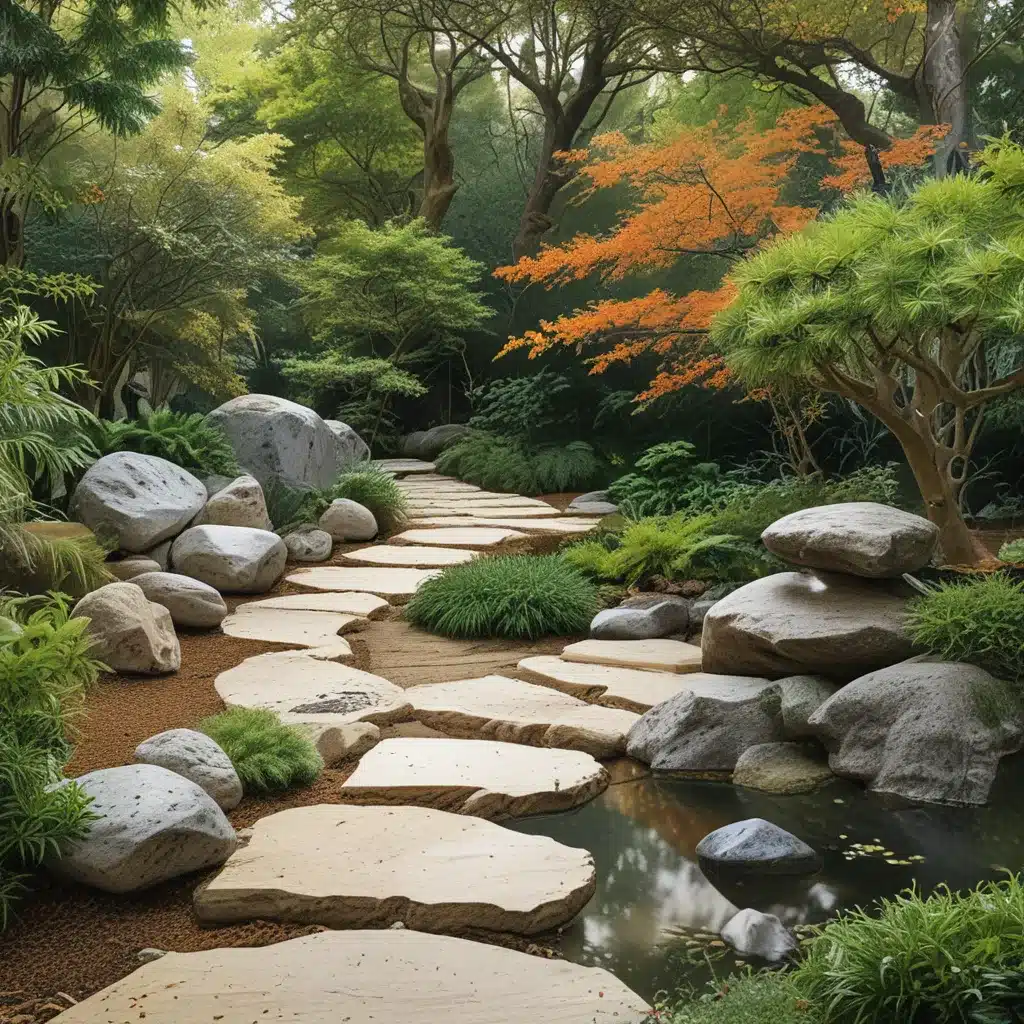Discovering the Essence of Tranquility
As I stepped into the serene landscape of the Zen garden, the world around me seemed to fade away. The meticulously raked gravel, the thoughtfully placed stones, and the delicate Japanese maples created a sense of harmony that calmed my senses and soothed my soul. This was no ordinary garden – it was a masterful blend of art, philosophy, and the very essence of nature.
My journey into the world of Japanese garden design began with a visit to A1 Landscape Construction, a renowned landscape company in Temecula, California. As I spoke with the experts there, I learned that the art of Zen garden design is not merely about creating a beautiful outdoor space, but rather a deeply spiritual and transformative experience.
The Principles of Zen Garden Design
The principles of Zen garden design, I discovered, are rooted in the teachings of Buddhism and the Japanese aesthetic of simplicity and minimalism. At the heart of it all is the concept of “wabi-sabi” – the appreciation of the imperfect, the transient, and the natural.
According to the BBC, Zen gardens are designed to evoke a sense of contemplation and introspection, encouraging the viewer to slow down and connect with the present moment. This is achieved through the careful placement of rocks, sand, and plants, each element carefully considered to create a harmonious and balanced composition.
Mastering the Art of Simplicity
One of the most renowned Zen garden designers in the world is Shunmyo Masuno, whose work is featured in the book “Zen Garden Design: Mindful Spaces by Shunmyo Masuno”. As Masuno explains, the art of Zen garden design is all about mastering the art of simplicity.
“Every landscape, small or large, has unique characteristics that we must contend with when designing,” Masuno says. “So every garden has its own unique character when we design it, whether it’s for a small corridor or a large landscape.”
The Spiritual Dimension of Zen Gardens
But the true beauty of Zen gardens, I came to understand, lies not just in their physical form, but in their ability to transform the human experience. According to Zen Japanese Landscape, these gardens are designed to serve as “an aid to meditation about the true meaning of living a life with nature,” offering a sanctuary for the mind and soul.
As I wandered through the meticulously maintained gardens at A1 Landscape Construction, I couldn’t help but feel a sense of serenity and inner peace wash over me. The simple act of observing the gentle movement of the leaves, the rhythmic patterns of the gravel, and the timeless beauty of the stones became a meditative experience, transporting me to a realm of heightened awareness and connection with the natural world.
Embracing the Ephemeral
But Zen gardens, I learned, are not merely static displays of beauty. They are dynamic, ever-changing landscapes that embrace the ephemeral nature of existence. As Masuno explained in his conversation with architect Terunobu Fujimori, the use of “ephemeral materials” like sand and water is crucial in creating a sense of impermanence and the constant flow of life.
“Designing with ephemeral materials and enduring nature,” Masuno said, “allows us to reflect on the transience of all things and the beauty that can be found in that impermanence.”
The Transformative Power of Zen Gardens
As I left the Zen garden at A1 Landscape Construction, I felt a profound sense of transformation. The experience had not just appealed to my senses, but had touched something deeper within me – a connection to the universal truths of life, death, and the ever-changing nature of the world around us.
This, I realized, is the true power of Zen garden design. It is not just about creating a beautiful outdoor space, but about cultivating a deeper understanding of ourselves and our place in the natural world. It is a journey of self-discovery, where the simple act of contemplation and connection can lead to a profound shift in perspective and a renewed appreciation for the beauty that surrounds us.




